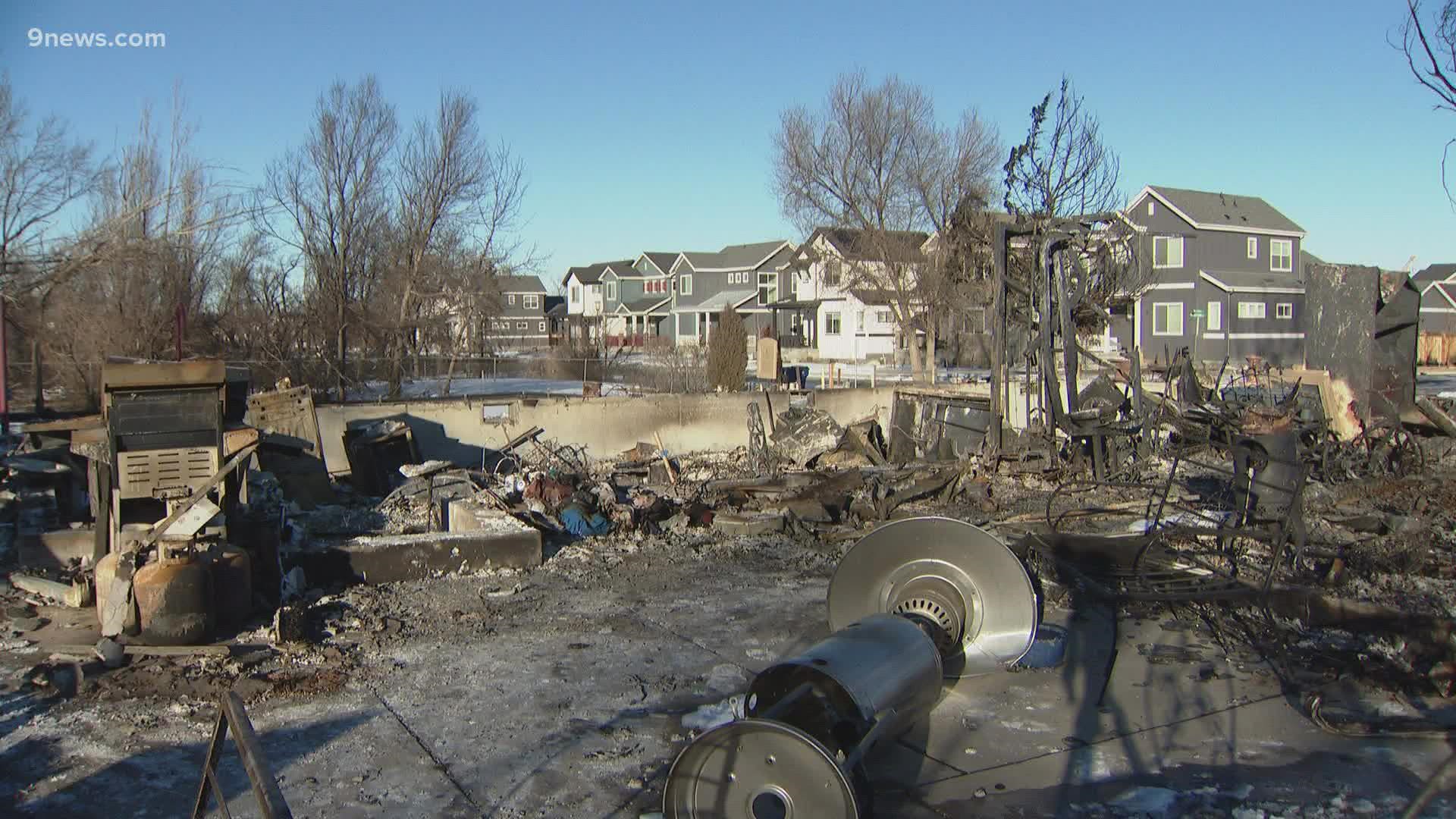BOULDER COUNTY, Colo. — Researchers with the University of Colorado and the National Oceanic and Atmospheric Administration are investigating how smoke and ash from the Marshall Fire are affecting air quality in and near the burn area.
CU professor Joost de Gouw said right now, the concentrations of chemicals inside homes are much higher than they are outside.
de Gouw said the odors will fade in time, but there are some things homeowners can do to help speed up the process.
"You can accelerate that by, for instance, having really good ventilation," he said. "On a nice day, open up all the windows and try to ventilate as much as you can. You could get air cleaners that absorb a lot of the chemicals."
de Gouw said homeowners can use activated carbon filters, which absorb odors more efficiently than normal filters.
"So you can get those, order those online, and clean up your home faster than the weeks it would take to clean out naturally," he said.
The researchers published a guide for mitigating post-fire smoke impacts indoors. In addition to opening windows and changing out filters, they recommend cleaning HVAC ducts and deep cleaning surfaces inside the home.
de Gouw said part of CU and NOAA's research is focusing on how air quality is affected by ash and soot being disturbed during cleanup efforts.
"This was not a regular wildfire," he said. "What burned was really homes and buildings and couches and trash and everything that we have in and around our homes. And so we don't know as well what kind of chemicals are released from burning that kind of fuel. And so we suspect there could be a lot of more harmful chemicals in that ash."
de Gouw said once the cleanup process is complete, researchers do not expect a longer-term impact to air quality in the Louisville and Superior areas.
SUGGESTED VIDEOS: Wildfires in Colorado

